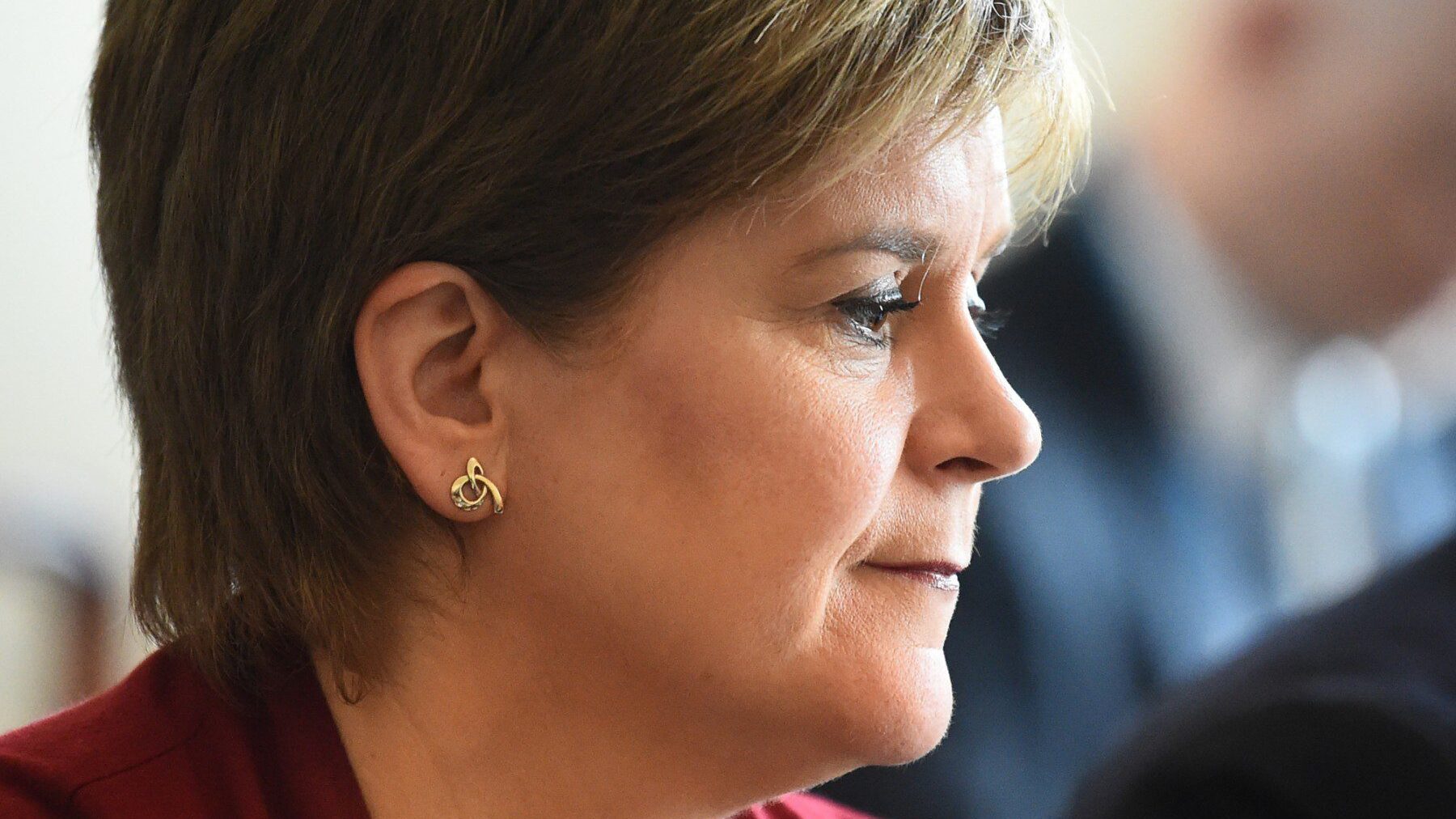
Scotland’s outgoing First Minister Nicola Sturgeon chairs her final cabinet meeting at Bute House in Edinburgh on March 21, 2023.
Photo: ANDY BUCHANAN / POOL / AFP
British media report that Scotland’s former First Minister, Nicola Sturgeon, was briefly arrested on Sunday, June 11th, as part of an investigation into the embezzlement of funds by her Scottish National Party (SNP).
Scottish police released a statement, which did not name Sturgeon but said they had arrested a “52-year-old woman,” who was deemed a suspect in its ongoing investigation into the funding and finances of the Scottish National Party.
She has since “been released without charge pending further investigation,” the statement adds.
At the time of her arrest, Sturgeon’s spokesperson said:
Nicola Sturgeon has … by arrangement with Police Scotland, attended an interview where she was to be arrested and questioned in relation to Operation Branchform.
Nicola has consistently said she would cooperate with the investigation if asked and continues to do so.
After her release, Sturgeon said that her arrest had been “both a shock and deeply distressing.”
Sturgeon’s arrest is the latest move by Scottish police under its Operation Branchform. Launched in 2021, its aim was to investigate possible fundraising fraud in the Scottish National Party (SNP).
The party had received €750,000 in donations to hold a referendum on Scottish Independence (leaving the UK). That referendum, however, never materialized, with much of the money having disappeared from the party’s coffers.
Sturgeon and her husband, among others, are alleged to have played roles in the suspected embezzlement. Apparently, Scottish police had no grounds to hold Sturgeon after questioning.
After her release, the former FM took to Twitter.
“To find myself in the situation I did today when I am certain I have committed no offense is both a shock and deeply distressing … I would never do anything to harm either the SNP or the country,” her statement read. “Given the nature of this process,” Sturgeon continued, “I cannot go into detail. However, I do wish to say this … I know beyond doubt that I am in fact innocent of any wrongdoing.”
STATEMENT pic.twitter.com/MlpWJGzwi0
— Nicola Sturgeon (@NicolaSturgeon) June 11, 2023
Earlier, a spokesperson for Sturgeon said she had voluntarily attended an interview with Scottish Police, which included a formal arrest and questioning, and was cooperating with its investigation.
Police also raided SNP party offices where they seized documents and computers. Sturgeon’s home was similarly searched. Peter Murrell, former party chairman of the SNP and Sturgeon’s husband, as well as the party’s treasurer, were both arrested earlier this year and released without charge after lengthy questioning. Pending further investigations, they remain suspects.
Sturgeon was first minister from 2014 to early 2023, making her Scotland’s longest-serving public servant in that position.
Sturgeon suddenly resigned in February of this year, citing as her reason having become too divisive a figure to lead her country to independence—a campaign which some analyses (one published by The European Conservative) view as but a cynical ploy on Sturgeon’s part to expound her inherently globalist and woke agenda.
While according to her, the decision was not a reaction to recent events, much points to her poor handling of the Isla Bryson case as the trigger.
Bryson, a self-described ‘transgender woman’, had been convicted of having raped two women ‘as a man’, but was placed in Scotland’s only women’s prison regardless through the use of the country’s Sturgeon-backed transgender laws.
The party suffered a backlash as a result, with public support dropping by 2% (down to 39%), according to a poll published in early March.
While it is yet unclear to what degree the SNP’s internal problems influence support for Scottish Independence, the latest voting intention poll, published in early May, places the ‘Yes’ side at 42% and the ‘No’ side at 52%.
Sturgeon’s successor, Humza Yousaf (who is yet to comment on Sturgeon’s arrest), is committed to see through independence for Scotland. As recently as last Saturday, he stated that “nobody should ever be in any doubt that independence will be front and center of the SNP’s next General Election campaign.”
We have a Westminster government denying our democratic mandate, denying the Scottish people their democratic choice.
— Humza Yousaf (@HumzaYousaf) June 11, 2023
Nobody should ever be in any doubt that independence will be front and centre of @theSNP's next General Election campaign. pic.twitter.com/gttEIDlmX9
Opinion on the issue remains somewhat moot, however, as the Conservative government in Westminster has consistently blocked such a referendum from happening in the first place.
